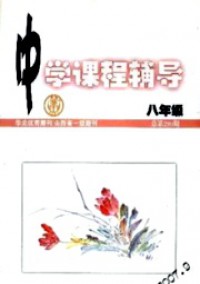八年级英语
前言:想要写出一篇令人眼前一亮的文章吗?我们特意为您整理了5篇八年级英语范文,相信会为您的写作带来帮助,发现更多的写作思路和灵感。

八年级英语范文第1篇
一个人的知识面是一个圆圈,知识储备越多,圆圈越大,接触到的面积便越广阔,便能掌握和窥视更多的机会。下面小编给大家分享一些英语八年级上册知识,希望能够帮助大家,欢迎阅读!
英语八年级上册知识1短语归纳
stay at home待在家里
take the bus乘公共汽车
tomorrow night明天晚上
have a class party进行班级聚会
half the class一半的同学
make some food做些食物
order food订购食物
have a class meeting开班会
at the party在聚会上
potatochips炸土豆片,炸薯条
in the end最后
make mistakes犯错误
go to the party去参加聚会
have a great/good 玩得开心
give sb.some advice给某人提一些建议
go to college上大学
make(a lot of)money赚(许多)钱
travel aroundthe world环游世界
work hard努力工作
a soccer player一名足球运动员
keep…to oneself保守秘密
talk with sb.与某人交谈
in life 在生活中
be angry at/about sth.因某事生气
be angry with sb.生某人的气
in the future在将来
run away逃避;逃跑
the first step第一步
in half分成两半
solve a problem解决问题
school clean-up学校大扫除
ask sb.to do sth.要求某人做某事
give sb.sth.给某人某物
tell sb.to do sth.告诉某人做某事
too…to do sth.太……而不能做某事
be afraid to do sth.害怕做某事
advise sb.to do sth.劝告某人做某事
It’s best (not) to do sth.最好(不)做某事
need to do sth.需要做某事
语法讲解
由 if 引导的条件状语从句 (主将从现)
if 用做连词时,可以表示“如果;假如”,用来引导一个条件状语从句。如:
I will go if he asks me.
If you eat bad food, you may be ill.
注意:在主句和条件状语从句中的动词都表示将来的动作时,主句中常用一般将来时,含有情态动词的句子或祈使句,也可以是谓语含有want, hope,wish等动词的句子,但从句中常用一般现在时代替将来时。如:
We will come to see you if we have time.
You won’t be able to pass the exam if you don’t work hard.
I hope to visit her if I am free.
1、I
think I am going to the party with Karen and Ann.
分析:
be going to do sth.将要、打算做某事。如:
I am going to do some shopping with my mother.
辨析:be going to and will.
be going to and will 两者都可以表示将来,其区别如下:
be going to 常用于事先经过的打算、计划或意图,也可用于根据某种迹象将要发生的动作。如:
Why are you taking down all the pictures?
I am going to repaint the wall.
L ook at the dark clouds in the sky.I t ’ s going to rain.
will 常用于不受人的主观意愿影响的单纯将来,也可用于条件状语从句中,还可以表趋向或习惯的动作。如:
Tomorrow will be Teacher ’ s Day.
I f it doesn ’ t rain tomorrow, we will go to the zoo.
W e will die without air or water.
2、Half
of class won ’ t come.
分析:
① half, adj and n.一半(的)。 h alf 常用于名词或修饰名词的冠词前面,即half a/an/the/one ’ s +n.还可以用于a half +n.这中结构。如:
P lease cut the cake into halves.
T he little boy drank half a bottle of water.== the little boy drank a halfbottle of water.
H alf of the children are from Chinese .
注意:half 短语作主语时,谓语动词与half后的名词保持一致
英语八年级上册知识2短语归纳
on Saturdayafternoon在周六下午
prepare for为……做准备
go to the doctor去看医生
have the flu患感冒
help my parents帮助我的父母
come to the party来参加聚会
another time其他时间
last fall去年秋天
go to the party去聚会
hang out常去某处;泡在某处
the day after tomorrow后天
the day before yesterday前天
have a pianolesson上钢琴课
look after照看;照顾
accept an invitaton接受邀请
turn down aninvitation拒绝邀请
take a trip去旅行
at the end of this month这个月末
look forward to盼望;期待
the opening of… ……的开幕式/落成典礼
reply in writing书面回复
go to the concert去听音乐会
not…until直到……才
meet my friend会见我的朋友
visit grandparents拜访祖父母
study for a test为考试学习
have to不得不
too much homework太多作业
do homework做家庭作业
go to the movies去看电影
after school放学后
on the weekend在周末
invite sb.to do sth.邀请某人做某事
what引导的感叹句结构:What+a/an+adj.+可数名词单数(+主语+谓语)!
What+adj.+名词复数/不可数名词(+主语+谓语)!
help sb.(to)do sth.帮助某人做某事
be sad to do sth.做某事很悲伤
see sb.do sth.see sb.doingsth.
the best way to do sth.做某事最好的方式
have a surprise party for sb.为某人举办一个惊喜派对
look forward to doing sth.期盼做某事
reply to sth./sb.答复某事/某人
What’s today?今天是什么日子?
What’s the date today? What day is it today?
语法讲解
1、prepare意为“准备”,强调准备的动作与过程。
宾语是这一动作的承受者。其后也可接双宾语,还可接不定式。 prepare for sth.为…准备好。for的宾语不是动作的承受者,而是表示准备的目的,即所要应付的情况。 / prepare to dosth 准备做某事。
prepare 强调准备的动作与过程。宾语是这一动作的承受者。其后也可接双宾语,还可接不定式。
get/be ready意为“准备好”,强调准备的结果。常见结构有:①beready(for sth.)②getsth.ready ③beready(for sth)④be get ready to do(准备干某事,乐于干某事)
We _____ the mid-term examination.Miss Li said, “Everyone should______beforeclass.
2.have
the flu 患感冒, have a cold 感冒 ,have a cough 咳嗽, have a fever 发烧 ,have a sore throat 喉咙痛, have a headache 头痛 ,have a toothache 牙痛,
3.hang
out 常去某处,泡在某处, hang on 紧紧抓住, hang about 闲荡, hang up 挂电话,悬挂,挂起
4.catch
you =see you = bye bye ,catch a cold感冒 , catch sb’s eye引起某人注意,catch the train 赶上火车
catch up with =keep up with 赶上,跟上 ,catch hold of=take hold of 抓住
5.accept
接受 , 反义词为: refuse。 accept指主观上愿意接受,receive 收到,指客观上收到或拿到,但主观上不一定会接受。I received his gift yesterday, but I wouldn’tlike to accept it.
(1) turn down = refuse 拒绝 turn up 放大调高 turn over 翻身 take turns 依次,轮流
(2) help sb.(to) do sth 帮助某人做某事 helpsb.with sth 在某方面帮助人 help oneself tosth 随便吃
(3)at the end of 在…末尾,在…尽头, bythe end of 到…末为止 in the end of 终于
6.surprised
形容词,感到意外的,主语是人be surprised to do sth 对做某事感到意外
surprising 形容词,令人惊讶的,主语是物 Thenews was surpring.surprise 名词,惊奇、惊讶 to one’ssurprise使某人吃惊,动词,使惊奇,使感到意外 It surprise sb to do sth.
7.look
forward to 期待,盼望,to 是介词,后跟名词,代词或动名词作宾语。
hear from sb.收到某人的来信 = receive a letter from sb.
hear of = hear about 听说
8.make
it 在约定的时间内到达,能够来 = arrive in time; Glad you couldmake it.
商量确定的时间,表示将来某项计划的安排,后接时间状语。 Let’s make it at seven o’clock on Tuesday.
成功办成某事 = succeed After yearsof hard work, he finally made it.
9.reply
回答,指用口头或书面形式回答,不及物动词 reply to sb/sth.对…..作出回答。
作及物动词,意为回答,回答说。作名词,意为:答道,回信,答复,后跟介词 to .
answer 是最普通的用语,包括口头,书面或行动的回答,可作及物和不及物动词。
英语八年级上册知识3短语归纳
milk shake奶昔
turn on接通(电流、煤气、水等);打开
pour…into…把……倒入……
a cup of yogurt一杯酸奶
a good idea好主意
on Saturday在星期六
cut up切碎
put…into…把……放入……
one more thing还有一件事
a piece of一片/张/段/首……
at this time在这时
a few一些;几个
fill… with…用……把……装满
cover…with…用……覆盖……
one by one一个接一个;逐个;依次
a long time很长时间
how many+可数名词复数 多少……
how much+不可数名词 多少……
It’s time (for sb.)+to do sth.到(某人)做某事的时间了
First…Next…Then…Finally 首先……接下来……然后…….最后……
want + to do sth.想要做某事
forget+to do sth.忘记去做某事
how + to do sth.如何做某事
need+to do sth.需要做某事
make+宾语+形容词 使……怎样
let sb.+do sth.让某人做某事
英语八年级上册知识4短语归纳
1.on
computer在电脑上 2.on paper在纸上 3.wake up醒来
4.live
todo 200 years old活动200岁 5.free time空闲时间
6.in
danger处于危险之中 7.on theearth在地球上
8.play
a part in sth.参与某事 9.in the future在未来
10space station太空站 11.computer programmer电脑编程员
12.look
for寻找 13.hundredsof许多;成百上千
14thesame…as…与……一样 15.getbored感到厌烦的
16.over
andover again多次;反复地 17.fall down倒塌
18.will+动词原形
将要做……
19.fewer/more+可数名词复数
更少/更多……
20.less/more+不可数名词
更少/更多……
21.have
to do sth.不得不做某事
22.agree
with sb.同意某人的意见
23.such+名词(词组)
如此……
24.play
apart in doing sth.参与做某事
25.There
will be + 主语+其他 将会有……
26.There
is/are +sb./sth.+doing sth.有……正在做某事
27.make
sb.do sth.help sb.withsth.帮助某人做某事
28.try
to do sth.尽力做某事
29.It’s+
adj.+for sb.to do sth.对某人来说,做某事……的。
英语八年级上册知识5短语归纳
1.grow
up成长;长大 2.every day每天
3.be
sure about对……有把握 4.make sure确信;务必
5.send…to…把……送到……
6.be able to能
7.the
meaning of……的意思 8.write down写下;记下
9.different
kinds of不同种类的 10.hardly ever几乎不;很少
11.have
to do with关于;与..有关系
12.ta
take up开始做;学着做
13.too…to…太……而不能……
14.be
going to+动词原形 打算做某事
15.practice
doing练习做某事
16.keep
on doing sth.不断地做某事
17.learn
to do sth.学会做某事
18.finishdoing
sth.做完某事
19.promise
to do sth.许诺去做某事
20.help
sb.to dosth.帮助某人做某事
21.remember
to do sth.记住做某事
22.agree
to do sth.同意做某事
23.love
to do sth.喜爱做某事
八年级英语范文第2篇
I often listen to English tapes in the morning.I think for me a great help.Writing class I have taken careful notes,and careful listening.Home to see your review notes,reading prep.I love to clean.Therefore,I develop a love of a good cleaning habits,I always sweep the floor,wiping the ground.
These are my habits.How about you?我的习惯不同的人有不同的习惯,我就有许多好习惯.
我经常听英语磁带在早上.我想着对我来说有很大的帮助.上课我认真写笔记,认真听讲.回家看笔记复习,看书预习.我很爱干净.所以,我养成了爱打扫的好习惯,我经常扫地,擦地.
这些就是我的习惯,你呢?
Under the take care of my mother,my eating habit is very regular.I often eat porridge in the morning.Sometimes my mother will prepare some pickles for me.But sometimes I will put an egg into the porridge to have the egg porridge.At noon,I will eat in school canteen.Sometimes I will have noodles.At night,my mother will prepare a big meal for me.After dinner,I will eat a little fruit.
在我妈妈的照顾下,我的饮食习惯是很有规律的.我常常在早上喝粥.有时候我妈妈会帮我准备一些小菜.但是有时候,我就会放一个鸡蛋到粥里来喝鸡蛋粥.中午的时候,我是在学校饭堂吃的.有时候我会吃粉.晚上我妈妈会给我准备好丰盛的晚餐,晚饭后,我会吃一些苹果.
Everyone has his or her habits.such as studying habits,sleeping habits and eating habits.some are good ,but some are bad habits ,
now let me tell you about my habits .I like drawing very much ,i often draw pictures ,and give it to my friends ,I like watching movies ,my favourite movie is Kongfu panda ,because it is funny and I can get inspiration from cartoons ,after all,I can learn english from that !I like singsing also ,and i am good at singsing .i have habits it can make me have a bright future !
八年级英语范文第3篇
( )1.---Would you like ________? ----Thank you,but I’m not thirsty.
A.some sandwiches B.some bananas C.some orange D.some noodles
( )2._______ do you make a fruit milk shake?
A.What B.How C.Which D.Who
( )3. I don’t like the TV program.Can you _____ the TV?
A.turn on B.turn off C.turn up D.turn down
( )4.Do you know how _______ fruit salad?
A.make B.to make C.making D.to making
( )5.---Did you go to the zoo yesterday? ---- _________.
A.Yes,I did B.No,I don’t C.Yes,I didn’t D.No,I did
( )6. ______ the end of the street,you will see the supermarket.
A.In B.On C.At D.For
( )7.I didn’t have fun ______ yesterday.
A.to skate B.skates C.skated D.skating
( )8.---Were there any sharks at the aquarium? ---_________.
A.Yes,there were B.No,there were C.Yes,there was D.Yes,there weren’t
( )9.--- _______ apples do you want? --- Four.
A.How many B.How much C.How long D.How far
( )10.---______ bread would you like? --- Two ______________.
A.How much;slice of breads B.How many;slices of bread
C.How much;slices of bread D.How many;slice of breads
( )11.Did you have a great time _____ your school trip?
A.on B.in C.at D.of
( )12.It rained ______ last Sunday.We just stayed at home.
A.all day B.all the day C.the all day D.all of the day
( )13.Tom looked ______ but he _____ happy on the trip.
A.tired;is B.tired;wasn’t C.tired;was D.tired;isn’t
( )14.We _____ the bus _____ school yesterday.
A.took;back in B.took;back on C.took;back to D.take;back to
( )15.Please _______ the water into the bottle.
A.put B.pour C.take D.leave
( )16.Please cut ____ three apples and put them ____ the blender.
A.up;in B.off;on C.up;into D.off;ionto
( )17.Please _______ the apple, then eat it.
A.peel B.make C.mix D.put
( )18.There is a box of ______ and two ______ of tea on the table.
A.banana;cup B. bananas;cups C. bananas;cup D. banana;cups
( )19.I want to drink some _______.
A.meat B.apples C.fruit D.water
( )20.How _____ salad and how _______ apples do you need?
A.many;many B.many;much C.much;many D.much;much
二、根据汉语意思及首字母提示,完成下列单词。(每空1分,共10分)
1.How m______ yogurt do you need?
2.Look at the cloud!It’s going to r_____.
3.You can see the shark at the __________(水族馆).
4.You must read the ______________(说明)before you take the medicine.
5.It’s going to rain.Please take an u__________ or a r__________ with you.
6.Our class _________(班长)is a good student.We all like her.
7.Don’t s_______ late at night,or you will be late for class tomorrow.
8.We need to add some _______(盐)to the soup.
9.Please ________(检查)your homework after you finish it.
10.Can you make a super turkey ____________(三明治).
三、用所给词的适当形式填空。(每空1分,共10分)
1.Did you ______(go)to Haikou yesterday?
2.We __________(have)a great time on the school trip last weekend.
3.I need two _________ (slice)of bread to make sandwich.
4.Please give me a _________(cup)of coffee.
5.We ________ (win)the game yesterday.
6.How many ________ (banana)do you need?
7.Mum made two _________ (tomato)sandwiches for me yesterday.
8.I went to the supermarket and __________(buy)lots of things yesterday.
9.Dolly _______________ (not go)to Beijng last weekend.
10.I _________(hang)out with my good friend last night.
四、句型转换。(每空1分,共10分)
1.Pour some water into the blender.(改为否定句)
________ _________ hot water into the blender.
2.We had great fun yesterday.(改为一般疑问句)
________ you ________ great fun yesterday.
3.I’d like two slices of bread.(就划线部分提问)
_______ ________ slices of bread would you like?
4.Here are five recipe for the great turkey sandwiches.(改为单数形式)
Here _____ ______ _______ for the great turkey __________.
五、根据中文提示,完成句子。(每空1分,共10分)
1.I lived in Haikou _________ __________ ___________.
我住在海口大约有五年了。
2.Please ________ the milk ________ the blender.
请把牛奶倒进果汁机中。
3.It’s raining outside!Please take your __________ _________ you.
外面下雨了,请带上你的雨伞。
4.Do you know _______ _________ _________ turkey sandwiches?
你知道怎样做火鸡三明治吗?
六、完形填空。(共10分)
An Englishman was on his way home. One day, he found that he had only enough(足够的) 11 to buy a ship ticket home. He knew that it would take him only two days to 12 to England, so he thought he could 13 two days with no food. Then he bought a ticket and got on the ship. It was time 14 lunch. He didn’t go to have it. In the 15 he said that he didn’t 16 well and went to bed early.
The next day he was too 17 . “I’m going to eat something,” he said, “even if they throw(扔) me 18 the sea.” He ate everything in front of him. “ 19 me the bill(帐单),” he said. “The bill, sir?” asked the waiter. “Yes,” answered the Englishman. “There isn’t any bill,” the waiter was 20 . “On the ship the ticket includes(包括) meals.”
( ) 11. A. food B. money C. time
( ) 12. A. arrive B. walk C. get
( ) 13. A. spend B. make C. stay
( ) 14. A. for B. to C. of
( ) 15. A. morning B. evening C. night
( ) 16. A. think B. eat C. feel
( ) 17. A. hungry B. thirsty C. awful
( ) 18. A. out B. on C. into
( ) 19. A. Take B. Bring C. Find
( ) 20. A. relaxed B. surprised C. tired
七、阅读理解。(共20分)
A
The word sandwich is an English word. Sandwich was an Englishman. He lived two hundred years ago. Sandwich had lots of money. He was very rich. But he liked playing cards for money. He often played all day and all night. One time, he played twenty-four hours and didn’t stop. He didn’t leave the card table to eat. He asked his servant to bring him some meat and some bread. He did not want to stop playing while he ate. He put the meat between two pieces of bread. In this way, he could go on playing cards. From the name of this man , Sandwich , we have the word “sandwich” today .( )1. Sandwich was ______ before.A. English food B. an English car C. an Englishman D. an English word( )2. Sandwich ______ played cards.A. sometimes B. never C. often D. some time( )3. Sandwich didn’t stop ______ when he played cards .A. eating B. to eat C. drinking D. to drink( )4. Sandwich played cards ______.A. all day B. all night C. day and night D. twelve hours( )5. Sandwich is the name of ______ today .A. a man B. food C. drink D. meat
B
George is a young man. He has a very big dog and a very small car. He likes playing volleyball. One day, after he plays volleyball for an hour at his club, he runs out and jumps into a car. His dog comes after him, but it doesn’t jump into the same car, it jumps into the next one.
“Come here, silly dog!” George cries at it, but the dog still stays in the other car.
George puts his key into the lock of the car, but the key doesn’t turn. Then he looks at the car again. It’s not his! He is in a wrong car. But the dog is in the right one.
( )1. George likes ______________ .
A. playing basketball B. playing volleyball
C. playing with his dog D. driving his car
( )2. George __________, so he jumps into a wrong car.
A. is careful(细心的) B. plays volleyball
C. is careless D. runs out
( )3. The dog __________ .
A. doesn’t like George B. cries at George
C. doesn’t jump into a car D. is clever
( )4. Why doesn’t George open the door? Because ___________ .
A. it isn’t his car B. something is wrong with the door
C. something is wrong with the key D. George is silly(愚蠢)
( )5. Which of the following is the best title(题目)? _______________.
A. George B. George and his dog
C. George and his car D. George likes playing
八、书面表达。(20分)
请记叙你的一个周末:你是怎样度过的?去了哪里?和谁一起去的?做了些什么事情?天气怎么样?(80-100词)
参考词汇:hang out with friends,sleep late,watch TV,help mum and dad,rain
_______________________________________________________________________________
_______________________________________________________________________________
_______________________________________________________________________________
_______________________________________________________________________________
_______________________________________________________________________________
_______________________________________________________________________________
八年级英语范文第4篇
关键词:立体引学式教学;八年级英语;阅读教学
【Abstract】Good English reading habit,the ability of studying spontaneously,good reading skills and the spirit of cooperation are the essentials of English learners.Grade Six is a very important period of forming English reading habit.How to help the students to get good English reading habit is a worthy question for English teachers.This article intends to make some elementary explorations of this issue.Improving the students' reading ability mainly includes the following aspects:cultivating their reading interests and confidence,reading habits,studying habits and developing their cooperative spirits,etc.Thus the students can have comprehensive ability of using the target language and have further development of their emotion and knowledge.
【Key words】Three-dimensional lead type teaching;Eighth grade English;Reading teaching
八年级英语阅读教学的主要任务是:培养学生的阅读兴趣,使学生树立英语阅读的自信心,培养学生良好的阅读习惯,发展学生自主学习的能力和合作精神,并使使学生掌握一定的阅读技能,从而形成一定的自主阅读能力。自主阅读能力的形成是建立在学生语言技能、语言知识、情感态度和文化知识等素养整体发展的基础上;而语言技能是自主阅读能力的基础,包括听、说、读、写能力。立体引学式教学提倡通过教师的启发引导来促进学生的自主学习,在阅读教学中就是要求教师启发引导学生的阅读方法,提高学生的自主阅读能力。在八年级英语阅读教学中,我在培养学生自主阅读能力的培养上做了一些尝试,收到了较好的效果。在此,我想结合我多年来的八年级英语教学实践,就如何运用立体引学式教学,培养学生自主阅读能力和良好的阅读习惯等,谈谈自己的一些体会。
一、把握阅读技巧,促进学生的自主阅读精神
我们纵观八年级英语下册的教材内容,每一单元都着重培养学生的一种阅读技巧。课文中提到的阅读技巧归纳起来有:①预测技能;②如何使用学生字典去阅读;③通过篇名和每段首句的理解去阅读;④通过篇局去阅读文章;⑤细节阅读;⑥通过寻找中心句去了解文章的大意等等。教学时我们要善于启发引导学生适当地了解和使用这些阅读技巧,提高学生的自主阅读水平和质量。在八年级英语阅读教学中,我是采用分层次设计几个问题来检测学生的自主阅读效果。问题的设计一般分为阅读前、阅读时及阅读后:阅读前设计的问题是为了导课,启发引导学生发表自己对某个现象或事情的看法,引起学生的求知欲及对所读课文的好奇心,促进学生的自主阅读;阅读时设计的问题难度要适中,让学生带着问题去自主阅读以增加阅读的针对性;阅读后设计的问题主要为了培养学生总结、概括、分析段落的自主阅读能力。有时侯问题的设计权分配给学习小组,展开组内及组间的竞赛,以活跃课堂的同时,促进学生的自主阅读精神。
二、扫除阅读障碍,培养学生的自主阅读能力
预习是学生在课前运用已有的知识技能,独立地发现问题、分析问题,进而达到解决问题这一目的的过程。提前预习是教师启发引导学生养成良好学习习惯和培养学生自主阅读能力的有效手段。
预习时重点是生词,启发引导学生正确读出单词,了解这些生词的意思以及它们的词性,而重点词则教师要启发引导学生自主查找其用法,从而为进一步整体理解课文打好基础,以些培养学生的自主阅读能力。
三、轻松导入新课,激发学生的自主阅读兴趣
课堂教学是为了调动学生的积极性,让他们主动参与课堂活动,而兴趣是做好一切的基础,因此课前的导语如果设计得好,就等于成功了一半。所以课程内容不同,导入新课的方式和方法也应随之而变化。我所采取的主要导入方式有:①设疑导入(对故事性较强的课文);②激趣式导入(对同学们感兴趣的话题);③时事、新闻导入;④讨论导入;⑤创设情境导入等。教师还可根据课文内容选出一些话题,用小组竞赛的形式或辩论的形式让学生进行讨论,这样不仅能培养学生的参与意识和团结协作精神,增强他们的自信心,而且能激发学生的自主阅读兴趣。如本人在教学八年级Unit 1——Do you think you will have your own robot?时,通过Would you like to have your own robot?导入新课, 然后再问 What do you want it to do for you/your family? 学生们讨论得非常热烈,最大程度的激发起学生的自主阅读兴趣。我将学生所想到的答案列举在黑板上,并有意将学生导入课文当中。这么一来,新课的重点就基本上解决了。
四、活化课文教学,提高学生的自主阅读效率
阅读教学既要重视语言知识的传授,又要重视阅读技巧的训练,从而保证课文的连贯性和逻辑性。本人通过活化课文教学,既提高了学生对课文的整体理解,又培养了学生的基本的语言能力,进一步提高学生的自主阅读的效率。下面介绍四种活化课文教学的方法:
(一)提问阅读法。
学生带着问题阅读课文,是有的放矢的好方法,这就需要教师在课前做充分的准备,能就课文内容熟练提问。问题类型必须是多样的,有细节题、理解题、分析题等,总之要围绕主题设计由浅入深,层层推进。例如:在教学八年级Unit 4-She said helping others changed her life.时,可设计问题如下:阅读前提问,(1) Is this a school of a village or a city? (2) What do the students think of the volunteer teachers?阅读后的提问:(1) Does Yang Lei love her volunteer work? (2) What is the volunteer teachers' life there? (3) What decision did Yang Lei have after the volunteer work?
(二)表格填充法。
某些课文长,难度大,学生在短时间内理解课文有困难的,教师在启发引导学生阅读课文时,可以按照时间顺序,地点等将课文内容整理编组设计成简明扼要的表格以便于学生迅速掌握课文大意。如在教学八年级下册Unit 3-Do you remember what you were doing?时,我根据课文出现的时间列表如下:
这样教师将表格展示给学生,学生就可以一目了然,较长的课文由难变易。实际上,这种方法可以帮助学生理清课文头绪,形成系统认识,提高学生的自主阅读效率,特别适应于写人物的说明文和列举数字较多的科普性文章。
(三)提纲法。
提纲法,就是精心设计课文的框架,引导学生填充,使学生对课文内容有整体性框架式理解。这种方法既减轻了学生的记忆负担,提高了学生的自主阅读效率,又增强了学生的整体理解能力和驾驭文段的能力。
五、加强课外阅读,巩固学生的自主阅读效果
八年级英语范文第5篇
gettysburg address
four score and seven years ago, our fathers brought forth on this continent a new nation, conceived in liberty, and dedicated to the proposition that all men are created equal. now we are engaged in a great civil war, testing whether that nation, or any nation so conceived and so dedicated, can long endure.
we are met on a great battlefield of that war. we have come to dedicate a portion of the field as a final resting-place for those who here gave their lives that the nation might live. it is altogether fitting and proper that we should do this. but in a larger sense we cannot dedicate, we cannot consecrate, we cannot hallow this ground.
the brave men,living and dead, who struggled here,have consecrated it far above our poor power to add or detract.the world will little note, nor long remember, what we say here, but it can never forget what they did here.
it is for us, the living, rather to be dedicated here to the unfinished work which they who fought here have thus far so nobly advanced. it is rather for us to be here dedicated to the great task remaining before us, ----that from these honored dead we take increased devotion to that cause for which they gave the last full measure of devotion, ----that we here highly resolve that these dead shall not have died in vain, ----that this nation, under god, shall have a new birth of freedom, ----and that government of the people, by the people, for the people, shall not perish from the earth.
免责声明:以上文章内容均来源于本站老师原创或网友上传,不代表本站观点,与本站立场无关,仅供学习和参考。本站不是任何杂志的官方网站,直投稿件和出版请联系出版社。


